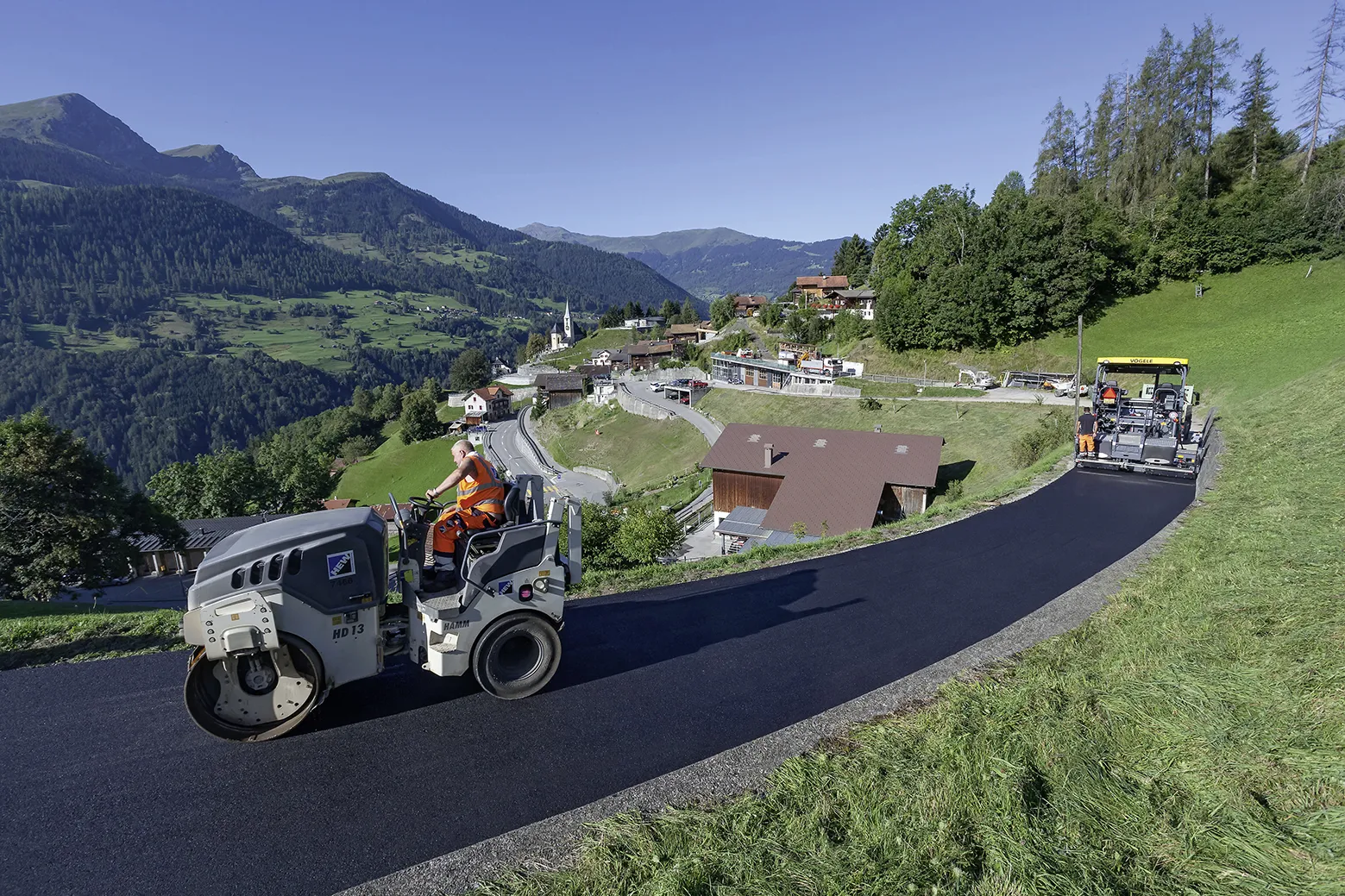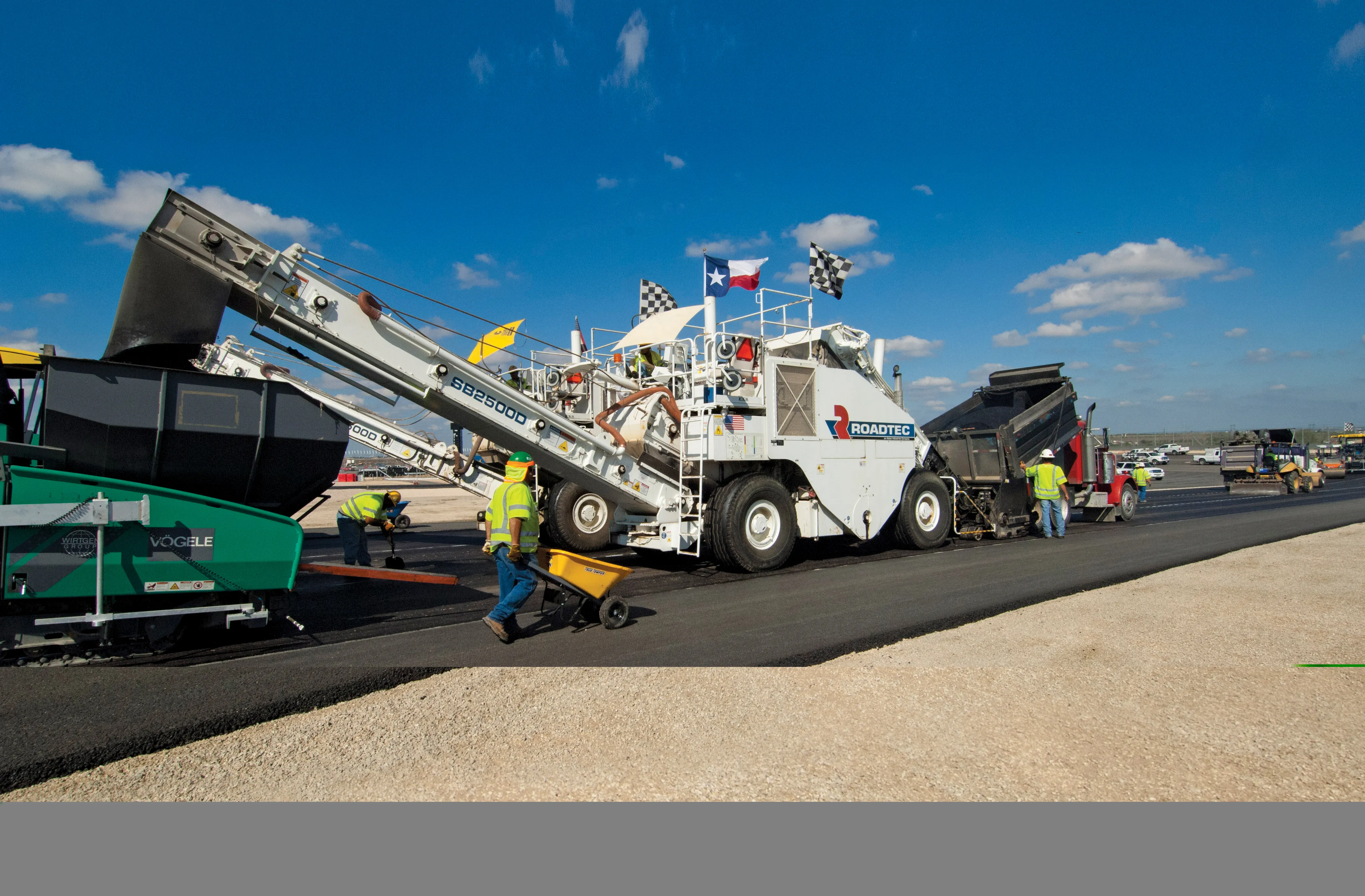
Asphalt paving is a challenge in the rough terrain of the Swiss Alps and nowhere more so than in the mountain village of Castiel. Extreme slopes, narrow roads and steep precipices place demands on the paving team and machinery. In the town of Castiel, in the Arosa district of the canton Graubünden, contractor HEW Bauunternehmung opted to use
The site is around 1,200m above sea level and an extreme slope of up to 11%. To make matters harder, the farm track was designed only for vehicles up to 18t. This was just the job for the innovative wheeled paver of Vögele’s Dash 3 generation.
The high traction and manœuvrability of the Super 1803-3i were particularly useful. “That makes working on extreme slopes almost as simple as on flat terrain,“ said paver operator Oliveira Rodrigues Hugo. With its powerful drive and material handling system, it was easy enough for the HEW paving team to complete the construction project in one shift. The short set-up times of the paver also contributed to this. Sensors for grade and slope control can be connected according to the plug-and-play principle. Vögele’s Niveltronic Plus System for automated grade and slope control automatically detects the connected sensor. The screed operator then just defines the specified values using the quick set-up function – and the work can begin. When its job is done, the paver makes a quick exit - travelling at up to 20kph under its own steam.









